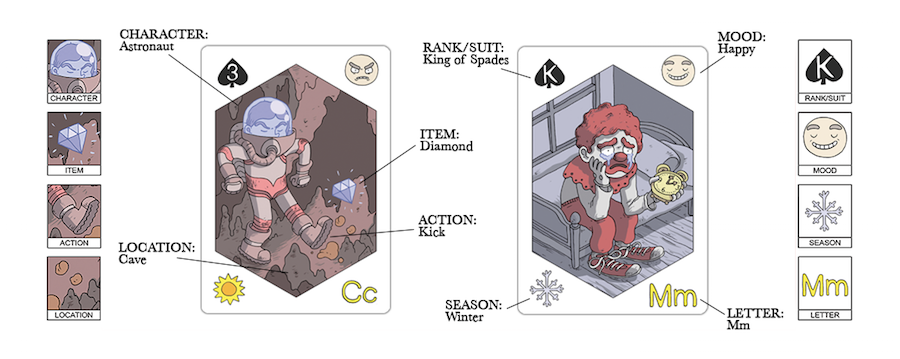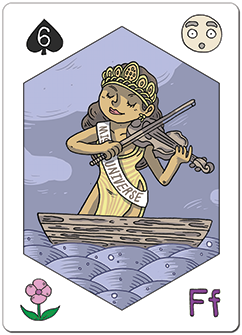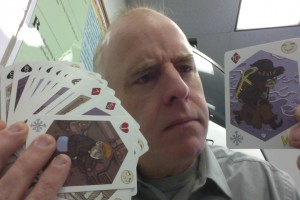Shuffle Up! Invite Storytelling in Your Class
A MiddleWeb Blog

Sometimes, this involves technology and digital tools. Sometimes, it’s just a twist on something already known. Whatever I can do to get them writing stories and finding their voices as writers is worth a try in my book.
So I was intrigued to see a reference to something known as Storyteller Cards, which is a project that was financed through a Kickstarter campaign (I did not participate in the Kickstarter for the cards, but I did pay $10 for a deck).
The deck is intriguing. Each card has a character, a setting, an object and an action. There is also an emotion element and a season. And the suits and numbers represented, too, just like regular playing cards. (Click to enlarge.)

Using the cards in class
The first time we used the story cards, I did not have a clear idea of how best to use them, so we started small. I gave every student two or three of the cards, and then opened up a discussion about what they saw on the cards.
They were intrigued. We discussed where writers get inspiration for writing stories, and how cards like these might help. I used the card developer’s template for a cloze-style story to ease my young writers into thinking about the cards as sources for inspiration. That led into a longer short story writing prompt.
Then, I opened the floor up to my students: How could we best use a deck of Storyteller Cards for writing activities?

Some students suggested using the cards as mentor texts and making their own versions of the story-playing cards with their own characters, items and setting.
Another student mentioned our regular Write Around activities (where one student starts a piece of writing and passes it to someone else) and how that could be adapted by starting a story with one card, and then introducing new characters and actions by being dealt a second card, and so on. There was talk about a charades activity, of acting out the story represented on a card.
I don’t know how often I will pull these cards out and get them into the mix of our daily “writing into the day” activities, but I like how the cards open up a flexibility of imagination for my young storytellers. I’m willing to let them take the cards and the stories where they will go and see where we all end up.
Now, shuffle the deck and pass me a card, will you? I’ve got a story to tell.



































Great idea on ways to use these cards, Kevin! I’m thinking of creating (although novice), some of my own and use the storytelling to develop understanding of vocabulary through practice via storytelling. Thanks!
Making your own is always a good idea …